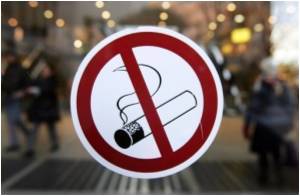
So a team of researchers, lead by Dr Tim Nawrot from Hasselt University, investigated whether recent smoking bans in Belgium were followed by changes in preterm delivery. In Belgium, smoke-free legislation was implemented in three phases (in public places and most workplaces in January 2006, in restaurants in January 2007, and in bars serving food in January 2010).
The researchers analyzed 606,877 live, single-born babies delivered at 24-44 weeks of gestation in Flanders from 2002 to 2011. Preterm birth was defined as birth before 37 weeks.
They found reductions in the risk of preterm birth after the introduction of each phase of the smoking ban. No decreasing trend was evident in the years or months before the bans.
The results show a reduction in the risk of preterm births of 3.13% on 1 January 2007 (ban on smoking in restaurants), and a further reduction in the risk of 2.65% after 1 January 2010 (ban on smoking in bars serving food). These changes could not be explained by several other factors - both at the individual level, such as mother's age and socioeconomic status - and at the population level, such as changes in air pollution and influenza epidemics.
Given that even a mild reduction in gestational age has been linked in other studies to adverse health outcomes in early and later life, our study has important public health implications, say the authors.
Advertisement
Source-Eurekalert














